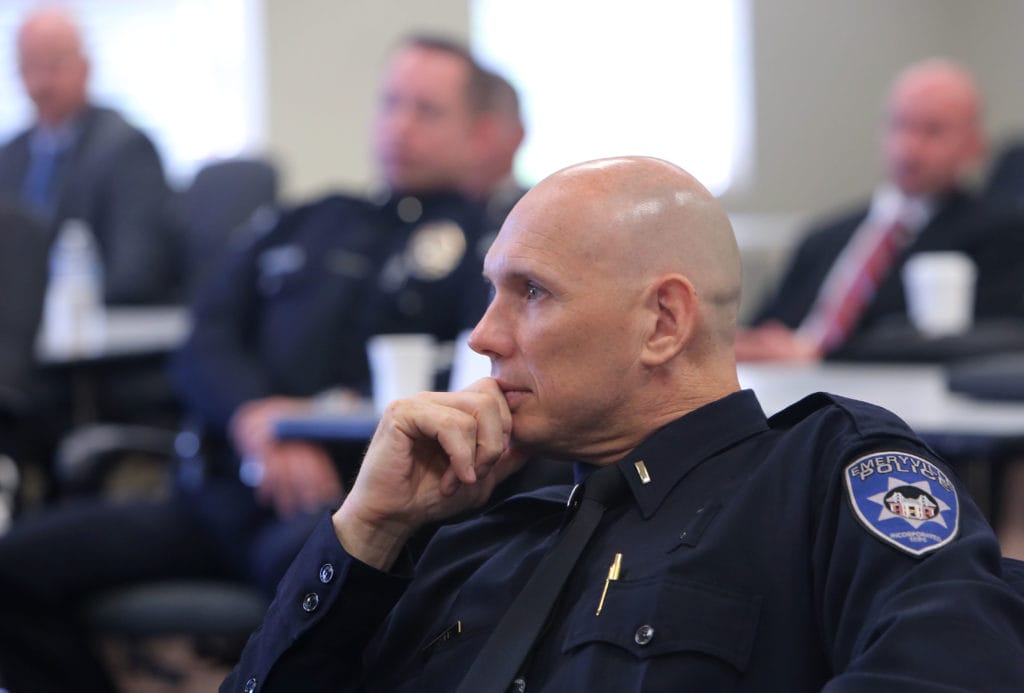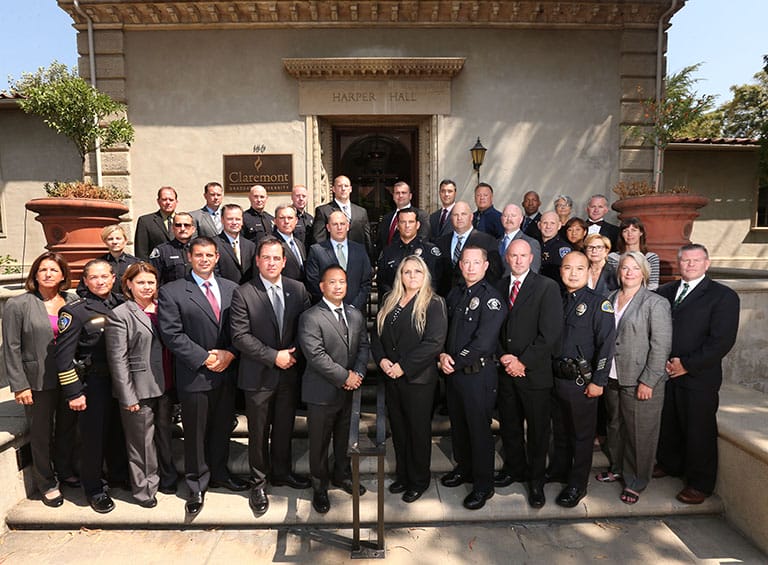Training the Next Generation of Police Leaders With Peter Drucker Principles

They protect. They serve. And—with insight from the most enduring modern management theorists—they lead.
Peter Drucker’s thinking on leadership has influenced a generation of business executives and CEOs. But the principles developed by the father of modern management are also being offered to benefit police executives and the communities they serve.
This past summer saw the launch of the inaugural California Police Chiefs Executive Leadership Institute (CPCELI) at Drucker. This new partnership between the Drucker School of Management and the California Police Chiefs Association (CPCA) provides participants a unique career-development opportunity in which the management visionary’s concepts are imbued with a law enforcement perspective.
The program is already netting impressive results with the recent news of two graduates’ promotions to the rank of police chief.
“One of the goals was to build a rigorous experience that provides a unique environment rich with subject-matter and academic expertise, foundational Drucker concepts, and networking opportunities,” said Jenny Darroch, the Henry Y. Hwang Dean of the Drucker School and Professor of Innovation, Entrepreneurship & Marketing. “We’ve succeeded with a one-of-a-kind program that is designed to enhance skills for new police chiefs and aspiring leaders preparing for executive leadership.”
Darroch collaborated with a team of CPCA members led by Robert Handy, the director-at-large of CPCA’s executive committee and Huntington Beach’s police chief, to create CPCELI.
Participating Drucker faculty include: Katharina Pick, who has conducted research in organizational behavior and theory; Jean Lipman-Blumen, who as experience teaching crisis management and leadership; Jay Prag, who teaches corporate finance, investments, and economics of strategy; and Vijay Sathe, an expert on entrepreneurship and the revitalization of self. Topics covered include risk management, evidence based decisions, citizen engagement and the public trust, mindfulness, and exemplary policing.

Several Drucker principles run throughout the program:
- A belief in the importance of a functioning society.
- A focus on people-centered management.
- A focus on performance.
- A focus on self-management.
- A practice based, transdisciplinary, and lifelong approach to learning.
“The program aims to equip current and future executives with the broad vision and practical management skills needed to lead agencies to success, internally and externally,” said Jackie Gomez-Whiteley, CPCELI’s program director and a former law enforcement officer who previously served as police chief for the Cypress Police Department and interim police chief for the Alhambra Police Department.
CPCELI’s summer cohort included law enforcement leaders from nearly 30 communities across California, Washington, and Arizona, including police departments from Newport Beach, Bakersfield, Fontana, Ventura, and public agencies in Tempe and the Gila River Indian Community.
At least two graduates from the summer cohort have been promoted since completing the program. Monrovia Police Department Captain Alan Sanvictores will be sworn in as police chief of that agency on November 7. The Sebastopol Police Department also announced it planned to promote Captain James Conner, another CPCELI graduate, to chief of that agency.
Another CPCELI cohort is planned for summer 2018.